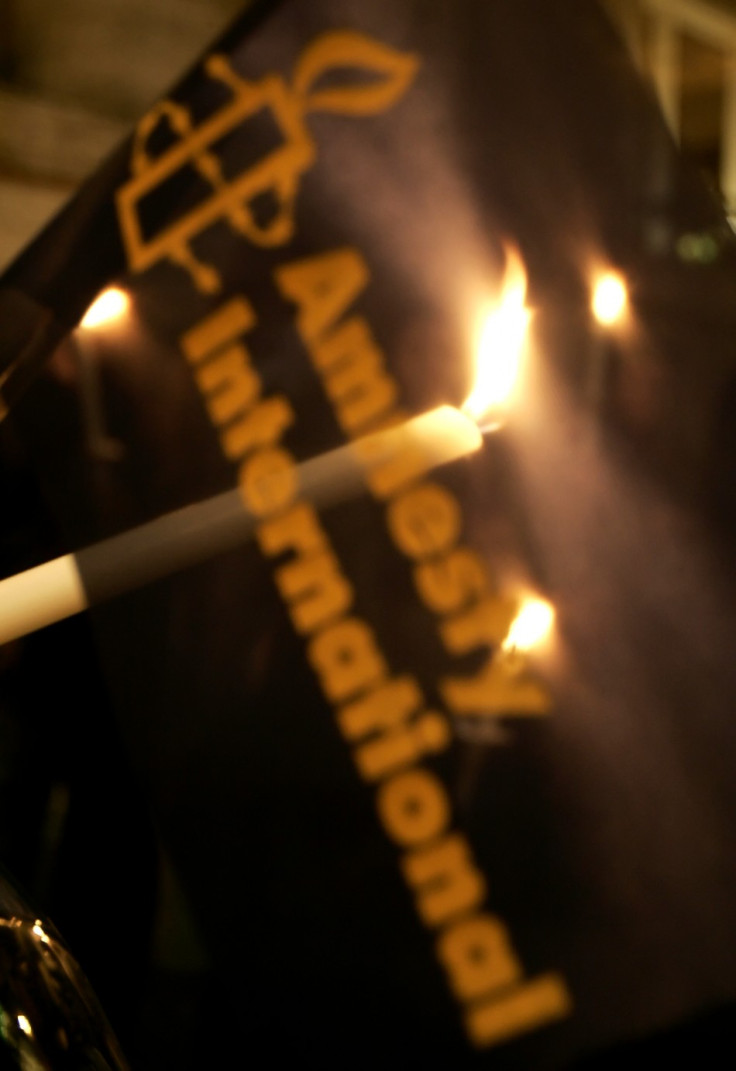Amnesty International 50th anniversary: Key dates and achievments

British lawyer Peter Benson began the movement that led to the establishment of Amnesty International in May 1961 by issuing an "appeal for amnesty" on behalf of two Portuguese students who had been imprisoned for raising their glasses in a "toast to freedom".
After focusing on campaigning for the release of "the prisoners of conscience", the organisation first broadened its remit in the 1980s to include refugees and human rights education and decided to promote all rights in the universal declaration of human rights in 1991. In 2001 it also began working on economic, social and cultural rights.
The organisation has won a Nobel Prize and its actions have challenged the political status quo throughout the world.
As the human rights campaigning group is marking its 50th birthday, here is a timeline of Amnesty's key dates and achievments.
1961
- Peter Benson, a British lawyer, launches an 'Appeal for Amnesty' with the publication of 'The Forgotten Prisoners' in the Observer on behalf of two Portuguese students who had been imprisoned for raising their glasses in a "toast to freedom". The appeal is followed by the establishment of a permanent international movement that will be known as 'Amnesty International'.
1962
- Amnesty launches its first mission in Ghana, which will lead to the release of 152 political prisoners.
1964
- The United Nations gives Amnesty consultative status.
1965
- The Council of Europe grants Amnesty consultative status and Amnesty sponsors a resolution at the UN to suspend and abolish capital punishment for peacetime political offences
1966
- 1,000 prisoners of conscience adopted by Amnesty, have been released since the movement started (a prisoner of conscience is defined by the organisation as "Any person who is physically restrained (by imprisonment or otherwise) from expressing (in any form of words or symbols) any opinion which he honestly holds and which does not advocate or condone personal violence")
1969
- UNESCO grants Amnesty consultative status
1972
- Amnesty launches the first worldwide campaign to abolish torture and is granted consultative status at the Inter-American Commission on Human Rights of the Organization of American States
1973
• The UN General Assembly approves Amnesty's resolution denouncing torture
1975
- The UN unanimously adopts a declaration against torture following Amnesty International's campaign
1977
- The organisation is awarded a Nobel Peace Prize for "having contributed to securing the grounds for freedom, for justice, and thereby also for peace in the world".
1984
- The UN adopts the Convention Against Torture on Human Rights Day.
1987
- Amnesty increases its mandate to include deliberate killings of people who are not prisoners and no longer distinguishes between political and non-political sufferers of human rights abuses
1990 Following the organisation's campaign, the death penalty is abolished in Hungary, Ireland, Mozambique, Namibia, Andorra, Sao Tome and Principe.
1996
- Amnesty campaigns for the establishment of the permanent International Criminal Court, which will be adopted by the UN in 1998
1997
- Amnesty changes its mandate to address human rights abuses by private actors rather than just by government entities
1998
- The British parliament finally votes to abolish the death penalty for treason and piracy
2005
- Amnesty has risen to become the world's largest independent human rights organisation with over 1.8 million members and supporters worldwide
- Peter Benson, Amnesty International's founder dies aged 83
2007.
- In a landmark resolution, the UN General Assembly call for a global moratorium on executions. By the end of 2007, 133 countries have abolished the death penalty in law or practice
2008
- At the United Nations 147 states voted to move forward with work on the Arms Trade Treaty (ATT), only Zimbabwe and the USA voted against it.
© Copyright IBTimes 2025. All rights reserved.





















